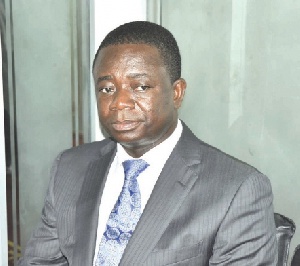Credible information, supported by documents, available to the Daily Statesman indicates that the Ghana Cocobod, under the watch of the embattled immediate past Chief Executive Officer, Stephen Opuni, dubiously dished out contracts to the tune of about $512 million during the transition period, without going through any competitive tendering.
The sole sourced contracts, according to available documents, were done at the blind side of the transition team, and against the advice of some senior technocrats at the Cocobod.
A substantial number of these contracts were also awarded on restricted tender basis, the documents further show.
These contracts, which were hastily awarded between December 3, 2016 and December 23, 2016, include about US$159 million, for the dollar contracts, and GHS 120 million, for the Ghana Cedis contracts.
Forty four of the contracts were awarded to various contractors, primarily in road sector, between October 3, 2016 to January 6, 2017.
Interestingly, majority of the road contracts were done on restricted tendering basis when the default position of the procurement act is competitive tendering.
A typical example was the contract for the rehabilitation of an 8.4 kilometre Sunyani Senior High School and Asana roads, in the Brong-Ahafo Region, at a cost of GH¢19,092,779 million awarded to Ousman Inusah Company on January 6, 2017.
A contract worth GH¢19,889,530.05 was also awarded to ERDMAC Company Limited, on the same January 6, for the surfacing of the Sankore-Kwabeng feeder road, also in the Brong-Afafo Region, where Stephen Opuni hails from.
The total contract sum for the restricted tendering is quite huge. The Cedi contracts was about GHS 1.138 billion whilst the US$ contracts was about $62.65 million
A computation of the sole sourced and the restricted tendering in a common currency (US$) comes to about US$ 512 million in just three months. Interestingly the only reason given for sole sourcing was that these items were of a “proprietary nature.”
General News of Monday, 6 February 2017
Source: peacefmonline.com

















